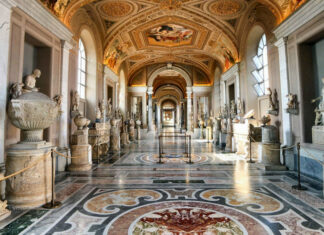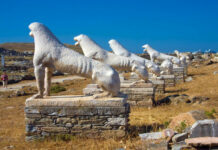The Acropolis Museum, Athens
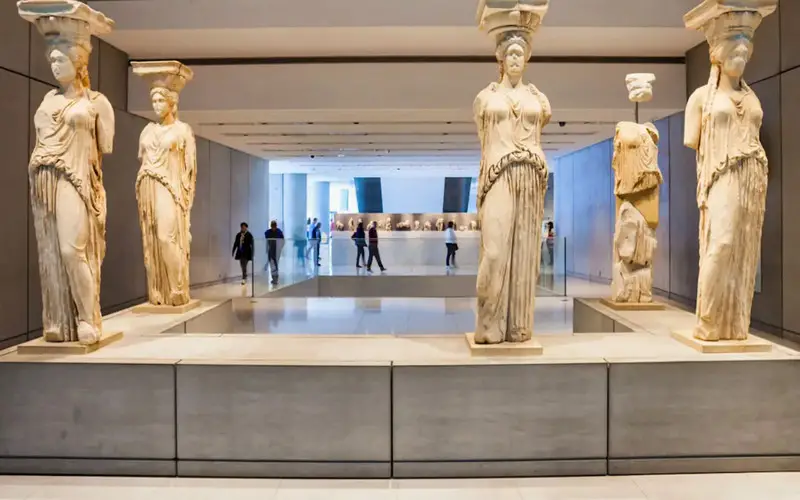
No visit to Athens is complete without a trip to the Acropolis Museum, a place where antiquity meets modernity in a stunning setting. The museum, which opened in 2009, is located in the shadow of the Acropolis itself, making it an ideal complement to your exploration of this ancient citadel.
The Acropolis Museum houses an impressive collection of artifacts, including sculptures, friezes, and pottery from the Acropolis. The museum’s crowning jewel is the Parthenon Gallery, which showcases the marble sculptures removed from the Parthenon itself. These sculptures, or “Elgin Marbles,” offer a comprehensive insight into the grandeur and artistic achievement of the Golden Age of Athens.
The modern design of the Acropolis Museum, featuring a glass floor through which visitors can see ongoing excavations, creates a unique and immersive experience. As you stroll through the galleries, you’ll feel like you’re traversing the timeline of ancient Greece.
National Archaeological Museum, Athens
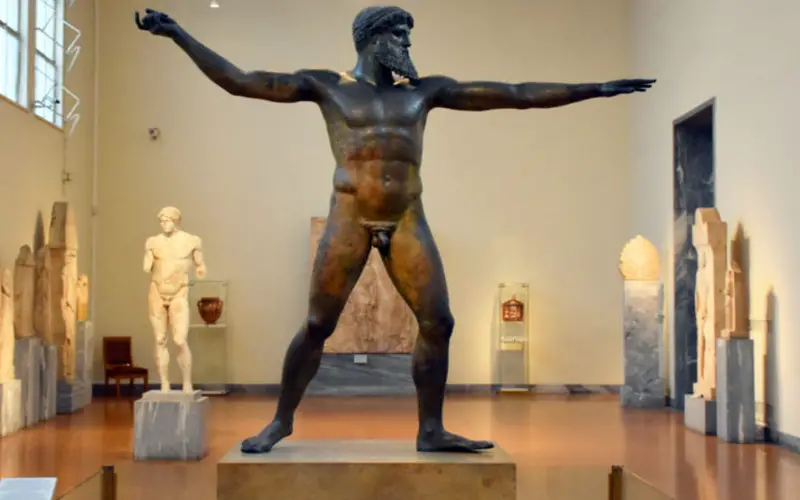
The National Archaeological Museum in Athens is a treasure trove of ancient Greek history, art, and culture. This vast museum houses the world’s most extensive collection of ancient Greek antiquities, with over 11,000 exhibits that span various periods, from the prehistoric era to the late antiquity.
Among the museum’s highlights are the stunning bronze statue of Poseidon, the frescoes from the island of Santorini, and an array of exquisite jewelry and pottery. The museum’s Mycenaean collection, which includes the famous “Mask of Agamemnon,” is a testament to the craftsmanship of the Mycenaean civilization.
Visiting the National Archaeological Museum is like taking a captivating journey through the evolution of ancient Greece, offering a deep appreciation of the nation’s contributions to art, philosophy, and culture.
Delphi Archaeological Museum, Delphi
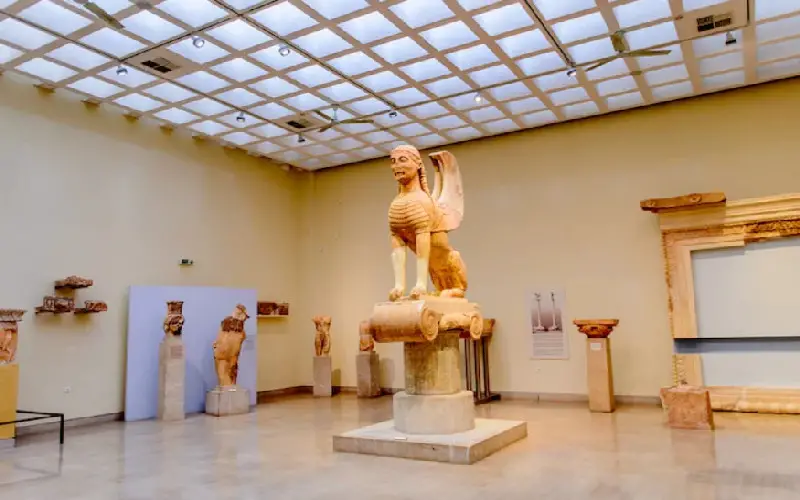
Nestled in the picturesque town of Delphi, the Delphi Archaeological Museum is a cultural gem that complements the awe-inspiring ruins of the ancient Delphic Sanctuary. The museum houses a magnificent collection of artifacts primarily excavated from the Delphic site.
The star of the museum is the Charioteer of Delphi, a remarkable bronze statue that epitomizes the ancient world’s artistic prowess. Visitors will also find a wide array of sculptures, inscriptions, and votive offerings dedicated to the gods of ancient Greece.
The Delphi Archaeological Museum allows you to immerse yourself in the sacred atmosphere of this ancient sanctuary and to gain insight into the practices and beliefs of the ancient Greeks. The surrounding mountainous landscapes add to the museum’s unique ambiance.
Heraklion Archaeological Museum, Crete
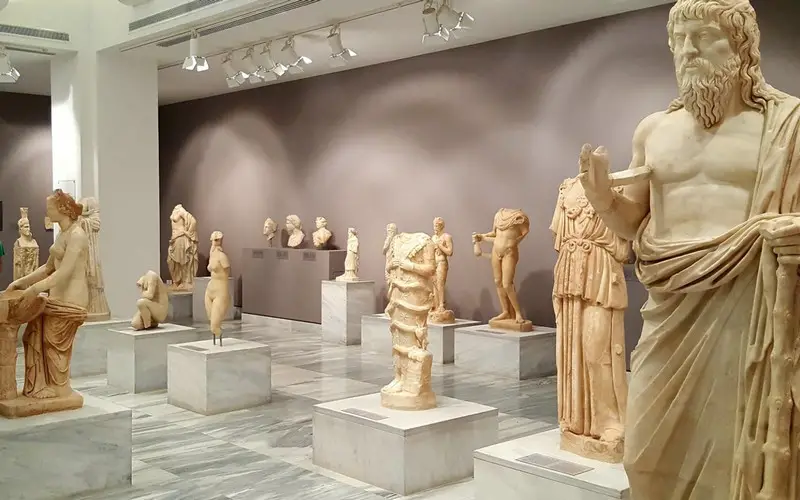
Crete, the birthplace of the Minoan civilization, is home to the Heraklion Archaeological Museum, a place that unravels the mysteries of this ancient culture. The museum is the most important institution of its kind dedicated to the Minoans, showcasing their art, religion, and daily life.
The highlight of the museum is the Minoan frescoes, particularly those from the Palace of Knossos, which provide vivid snapshots of Minoan society. The famous “Prince of the Lilies” and the “Snake Goddess” figurines are also showcased here.
By exploring the Heraklion Archaeological Museum, you’ll gain a profound understanding of the Minoan civilization’s influence on Greek history and appreciate the island’s pivotal role in the development of ancient Greece.
Museum of Byzantine Culture, Thessaloniki
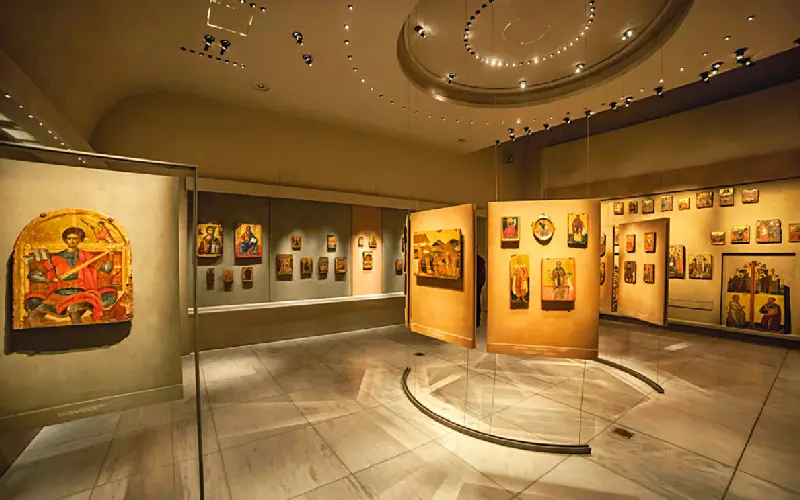
The Museum of Byzantine Culture in Thessaloniki offers a unique perspective on the Byzantine Empire, a fascinating era that bridges the gap between the ancient world and the Middle Ages. The museum’s collection consists of over 3,000 artifacts, including religious art, icons, pottery, textiles, and manuscripts.
What makes this museum exceptional is its thematic presentation. It doesn’t just display individual artifacts but tells a cohesive story of the Byzantine Empire’s history, society, and culture. The chronological layout allows visitors to follow the evolution of Byzantine art and daily life.
From the intricate mosaics and the magnificent Byzantine icons to the religious manuscripts, the Museum of Byzantine Culture is a remarkable exploration of a period that has deeply influenced not only Greece but also the entire Eastern Mediterranean.







